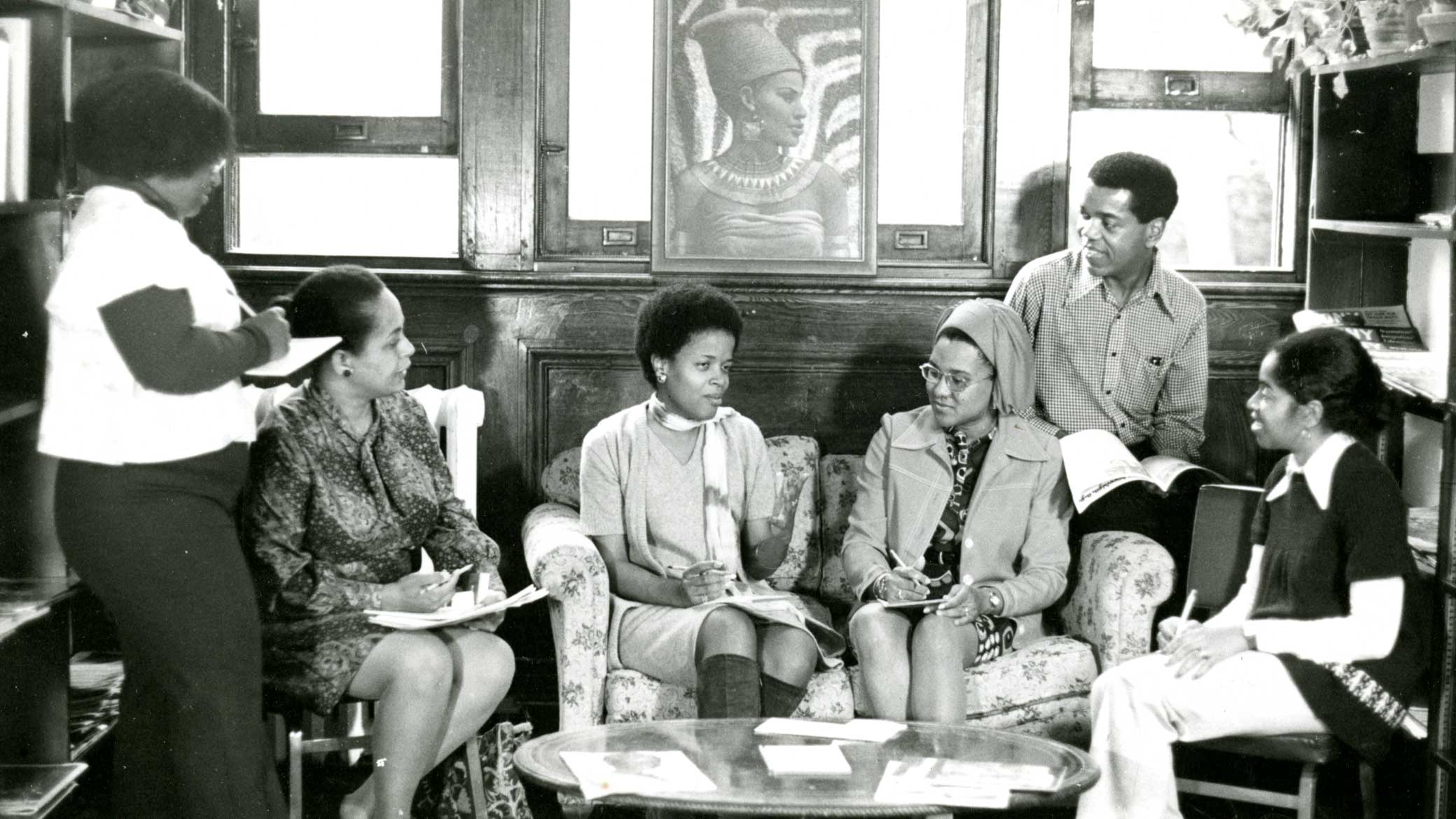Vassar Celebrates 50 Years of Africana Studies Curriculum with Three-Day Conference
Vassar Celebrates 50 Years of Africana Studies Curriculum with Three-Day Conference
In 1969, 34 African American female students occupied Vassar College’s Main Building, demanding that the college create a program focusing on the black experience. One of the outcomes of that protest was the creation of a Black Studies (now known as Africana Studies) Program. From November 1 to November 3, the college will celebrate the 50th anniversary of the program with a conference, “Africana Studies and the Future of Freedom.” The event will feature noted scholars, current and former faculty and staff, and current and former students—including some who took part in the protest 50 years ago.

MacArthur Fellow and nationally renowned writer Saidiya Hartman, Professor of English and Comparative Literature at Columbia University, will deliver the opening address November 1 at 7 pm. Novelist Aminatta Forna, Lannan Visiting Chair of Poetics at Georgetown University, will give the keynote address November 2 at 5:30 pm.
The conference, which will take place in various venues on the campus, is free and open to the public. It will start at 4 pm November 1 in the Villard Room on the second floor of Main Building. The first director of the Black Studies Program, Milfred Fierce, will participate in the conference’s first panel discussion, titled “Between Reparations and Resilience,” at 4:15 pm.
Fierce, who was head of the Black Studies Program at Vassar for two years, retired in 1999 as Chair of the Africana Studies Department at Brooklyn College, where he served on the faculty for 19 years. He said he was looking forward to speaking at the conference about his time at Vassar.
Fierce said the early years of the program were challenging because he was not permitted to hire full-time, tenure-track faculty. But he added that the college supported a request from him and the students to provide most of the funding for a study trip to Africa the summer after the program was launched.
An alumna who took part in the protests and subsequent creation of the Black Studies Program, Maybelle Taylor Bennett ’70, said she too was looking forward to attending the conference. “I feel very good about the Africana Studies Program and later the creation of the ALANA (African American Latinx Asian Native American) Center,” Bennett said. “When you are starting something like this, you wonder about the energy it will take to sustain it, but I was always confident that we had a critical mass to ensure that what we started would continue.”
Associate Professor of English Tyrone Simpson, who chairs the program, said he hoped the three-day event would advance the dialog about Vassar’s ongoing role in studying the black experience. “Fifty years ago, it was still an open question whether people of African descent had any claim on modern life,” Simpson said. “It remained ponderous if the nations of the world and their institutions had any room for us. Few believed that black people were important enough to commit to them both money and mind. It is for these reasons, and many others, that we should celebrate the efforts of black students and faculty—and those College leaders that supported them—to create a space within Vassar to study the black experience in places across the globe. This conference will do so and put on display the results of their initiative long ago taken; chief among them is Africana Studies’ commitment to contribute to and, at times, correct the narrative the world tells about itself.”